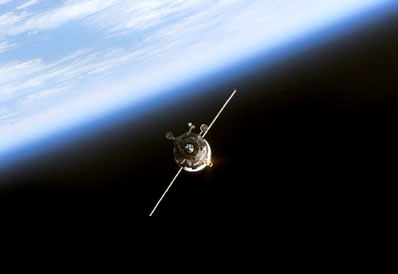
Informations pratiques
Ceci est un événement réservé.
En savoir plus sur nos programmes de soutienAs European institutions continue to consider the use of space for security as well as the need for security in space, the United States has known a series of space reviews this past year. To explore these issues and foster an original debate, the Secure World Foundation, newly established in Brussels, joins forces with Ifri"s Space Policy Program to organize a conference.
Monday, October 4th afternoon
Registration and coffee: 1:30 pm
2:00-2:30 - Keynote Speech: " US Space Policy : What has Changed "
Marcia SMITH, President of the Space and Technology Policy Group, LLC
2:30-4:00 - Panel 1: The Evolving Management of Space Issues in Europe
Moderator: Laurence NARDON, Head of the Space Policy Program at Ifri
The EU and Space after the Lisbon Treaty
Paul WEISSENBERG, Director for Aeorospace, GMES, Security and Defense, EU Commission
The role of Space in the EU “Common Security and Defense Policy”
Claude-France ARNOULD, Deputy Director-General, Crisis Management and Planning Directorate, General Secretariat, Council of the European Union
The Organization of Military Space in Europe: Issues and Constraints
Xavier PASCO, Senior Research Fellow, Fondation pour la Recherche Stratégique (FRS)
4:00-4:15 - Coffee break
4:15-6:00 - Panel 2: Space for Crisis Management
Moderator: Agnieszka LUKASZCZYK, Space Policy Consultant, The Secure World Foundation
The Use of Space Assets in the Aftermath of the Haiti Earthquake
John BEVINGTON, Senior Project Scientist, ImageCat
WorldWide Responsive Space
Jörg SZARZYNSKI, Senior Expert, UN-SPIDER
The “Responsive Space for Crisis Management” Project
Luca Del MONTE, Security Policy Officer, Security Strategy and Partnership Development Office, Director General's Policy Office, European Space Agency (ESA)
6:00 - Cocktail Reception
Tuesday, October 5th Morning
9:00-10:30 - Panel 3: Transparency and Confidence-Building Measures In Space
Moderator: Ray WILLIAMSON, Executive Director, The Secure World Foundation
What are TCBMs in Space?
Lars HÖSTBECK, Deputy Head, Division of Defence and Security Systems and Technology, Swedish Defence Research Agency (FOI)
Progress of the EU Draft “Code of Conduct for Outer Space Activities”
Jean-François MAYENCE, LLM, Head of the Legal Unit "International Relations", Belgian Federal Office for Science Policy
The US Take on Space TCBMs and the “Prevention of an Arms Race in Outer Space” Process
Dick BUENNEKE, Deputy Director, Space Policy, Office of Missile Defense & Space Policy, Bureau of International Security and Nonproliferation, US Department of State.
10:30-11:00 - Coffee break
11:00-12:30 - Panel 4: The Benefits of Space Sustainability
Moderator: Theresa HITCHENS, Director, UN Institute for Disarmament Research (UNIDIR)
The Benefits of a Stable Space Environment for the Military
Lt Col Brandon JAEGER, USAF, Joint Staff Space Policy Planner
European Projects for Space Situational Awareness
Erwin DUHAMEL, Head of the Security and partnership Development Office, Director General's Policy Office, European Space Agency (ESA)
The Space Data Association, an Original Effort
Brian WEEDEN, Technical Advisor, The Secure World Foundation
Sujets liés
Autres événements

Sécurité collective et pivot américain : les enjeux de burden-shifting/burden-sharing en Europe
L’Ifri accueille l’amiral Pierre Vandier, Commandant suprême allié pour la transformation de l'OTAN, le 15 janvier 2026 à 9h30, à l’occasion d’un BBS consacré aux enjeux du burden-sharing.

André Beaufre, un stratège pour notre temps
Relire Beaufre aujourd’hui !
Le célèbre auteur d'Introduction à la Stratégie (1963), le général André Beaufre (1902-1975) n’a pas dit son dernier mot. Ses concepts-clefs demeurent pertinents.

L’économie européenne et ses entreprises face au risque géopolitique : approches croisées
Les tensions géopolitiques deviennent une contrainte et une source de risque majeure pour l’économie européenne et ses acteurs privés comme publics.










